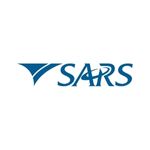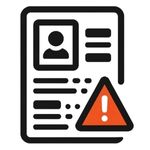
As the South African Revenue Service (SARS) enhances its ability to detect non-compliance through advanced technology, artificial intelligence, and data analytics, businesses are under growing pressure to ensure their tax affairs are fully accurate and up to date. To stay compliant, the services of a qualified tax practitioner are highly beneficial, but only if the practitioner is properly registered and recognised by the relevant authorities.
Key Takeaways
- Registered and Qualified Practitioners Are Mandatory: To legally operate in South Africa, tax practitioners must be registered with SARS and affiliated with a Recognised Controlling Body, meeting specific education, experience, and compliance requirements.
- Services Cover All Major Tax Obligations: Tax practitioners assist with income tax, VAT, PAYE, UIF, and SDL returns for individuals, businesses, trusts, and employers, ensuring accurate submissions and regulatory compliance.
- SARS Readiness Programme Is Compulsory: Prospective tax practitioners must complete SARS’s Tax Practitioner Readiness Programme, pass an assessment with at least 90%, and meet ongoing professional development standards.
About Arcadia Finance
Getting a loan shouldn’t be stressful, and with Arcadia Finance, it isn’t. Apply for free and compare offers from 19 reputable lenders, all fully compliant with South Africa’s National Credit Regulator. Simple, safe, and designed around your needs.
What Do Professional Tax Practitioners Do?
Professional Tax Practitioners (SA) are authorised to carry out all tasks that a Professional Tax Technician (SA) is permitted to handle, but their scope of work is broader. In addition to those basic functions, they are fully qualified to register every category of tax, not limited to personal income tax. They can complete and submit tax returns on behalf of individual taxpayers as well as companies, close corporations, trusts, and other business entities.
Their responsibilities also include the preparation and submission of employee-related tax declarations, such as PAYE, UIF, and SDL returns. Furthermore, they are equipped to manage and file VAT returns, ensuring compliance with the relevant legislative requirements.
Who Qualifies To Be A Tax Practitioner In South Africa
In order to be registered as a tax practitioner in South Africa, specific eligibility criteria must be met, along with a formal registration process. Individuals must be affiliated with a Recognised Controlling Body (RCB) as defined under Section 240A of the Tax Administration Act. This affiliation ensures that the practitioner operates within an approved regulatory framework. In addition, applicants must possess the minimum qualifications and relevant work experience as determined by the respective RCB to which they are affiliated.

Services Offered by a Tax Practitioner in South Africa
A tax practitioner in South Africa provides professional assistance to individuals and businesses to ensure that all tax obligations are met in line with SARS regulations. These services cover a wide range of administrative and compliance functions essential for tax matters.
Registration as a Tax Practitioner with SARS
A qualified tax practitioner must be officially registered with the South African Revenue Service (SARS) under the requirements of the Tax Administration Act. This registration process includes being affiliated with a Recognised Controlling Body (RCB), meeting the prescribed qualifications and experience, having no relevant criminal convictions, and participating in ongoing professional development. The registration process is managed jointly by the tax practitioner and their RCB.
Registration for All Applicable Tax Types
Tax practitioners assist clients in registering for the full range of tax types relevant to their personal or business needs. This includes Income Tax for individuals and legal entities, Value-Added Tax (VAT) for businesses that meet the turnover threshold, Pay-As-You-Earn (PAYE) for employers with salaried staff, and Provisional Tax for those earning income not subject to regular employee tax deductions. These registrations are essential for compliance and must be completed through SARS.
Considering a career as a tax practitioner? It’s helpful to compare earnings with similar fields. Explore the accountant salary in South Africa to get a realistic view of potential income in a related financial role.
Preparation and Submission of Income Tax Returns
A core service provided by tax practitioners is the preparation and filing of Income Tax returns. This includes returns for individuals, such as salaried workers, small business owners, and those earning passive income, as well as returns for companies, trusts, and other business structures. Practitioners ensure that all income, deductions, and credits are accurately reported and that the returns are submitted through SARS eFiling or approved platforms within the prescribed deadlines.
Preparation and Submission of PAYE Returns
For clients who employ staff, tax practitioners manage the preparation and filing of all PAYE-related submissions. This includes monthly EMP201 returns, which declare PAYE, UIF, and SDL liabilities, and the bi-annual EMP501 reconciliation that aligns payroll deductions with payments made to SARS. Accurate and timeous submissions are crucial to avoid penalties and interest charges.
Preparation and Submission of VAT Returns
For VAT-registered businesses, tax practitioners are responsible for preparing and submitting VAT201 returns, which declare both output and input VAT for the relevant tax periods. This service ensures that businesses calculate VAT payable or refundable correctly and remain compliant with the VAT Act. Practitioners also monitor deadlines and submission intervals to prevent any administrative issues.

Requirements For Registering as a Tax Practitioner
To become a registered tax practitioner in South Africa, certain criteria must be satisfied in line with the Tax Administration Act.
An applicant must be affiliated with a Recognised Controlling Body (RCB), as outlined in Section 240A of the Act. This means the individual must be under the oversight of an approved professional organisation that ensures compliance with industry standards and ethics.
The individual must also hold the minimum qualifications and relevant work experience as determined by their RCB. These requirements vary depending on the specific body but typically include formal education in tax or accounting and a minimum period of practical experience.
In addition, applicants must have no criminal record involving offences specified in Section 240(3) of the Tax Administration Act. This includes crimes related to dishonesty, such as fraud or theft.
Lastly, registered tax practitioners are expected to take part in ongoing professional development programmes. These activities are set by the RCB and are required to maintain active registration and keep up to date with regulatory changes.
SARS Tax Practitioner Readiness Programme
The SARS Tax Practitioner Readiness Programme is a mandatory educational initiative designed to equip prospective tax practitioners in South Africa with the necessary knowledge and understanding of their roles, responsibilities, and the operational procedures of the South African Revenue Service (SARS). Implemented as a prerequisite for registration, the programme ensures that practitioners are well-prepared to offer professional and ethical services to their clients.
Programme Structure
As of January 2025, the programme comprises eight modules, each focusing on specific aspects of tax practice:
| Module | Description |
|---|---|
| Introduction | Overview of the programme and its objectives. |
| Legislation | Detailed examination of the tax laws and regulations applicable to practitioners. |
| Criteria for Recognition of Controlling Bodies | Understanding the standards and requirements for bodies overseeing tax practitioners. |
| How to Register as a Tax Practitioner | Step-by-step guidance on the registration process with SARS. |
| Getting Started – Becoming SARS Ready | Preparation for engaging with SARS systems and processes. |
| Channels of Engagement | Exploration of the various communication and service channels available to practitioners. |
| eFiling | In-depth look at the eFiling system, including functionalities and best practices. |
| Employer Tax Season Made Easy | Guidance on managing employer-related tax obligations efficiently. |
Each module is accompanied by video presentations and written materials to facilitate comprehensive learning.
Assessment and Certification
Upon completion of the modules, participants are required to undertake an assessment to evaluate their understanding of the material. Key points regarding the assessment include:
- Pass Mark: A minimum score of 90% is required to pass.
- Attempts: Participants are allowed up to three attempts to achieve the pass mark.
- Retake Policy: If unsuccessful after three attempts, a waiting period of three months is imposed before reattempting the assessment.
Successful completion of the assessment is a critical step in the registration process as a tax practitioner with SARS.
Accessing the Programme
Prospective tax practitioners can access the programme materials through Recognised Controlling Bodies (RCBs) or directly via the SARS website. Additionally, SARS provides video content on its official YouTube channel to support the learning process.
Many tax practitioners work independently or run their own businesses. Accessing funding can be tricky, but there are options tailored to loans for self-employed in South Africa that can support your growth and operational costs.

How to Verify if a Tax Practitioner Is Registered in South Africa
Verifying a tax practitioner’s registration is essential to ensure compliance with SARS requirements. SARS provides several ways for individuals and businesses to confirm whether a practitioner is officially recognised.

Use SARS eFiling to Confirm Registration
You can verify a practitioner’s status through the SARS eFiling website by navigating to the “Confirm Practitioner Registration” section. After entering the necessary details, the system will display whether the individual is registered and in good standing.

Contact SARS Directly
Alternatively, SARS can confirm registration via its contact centre on 0800 00 7277. You may also visit a SARS branch for in-person assistance with verification.

Check with Recognised Controlling Bodies (RCBs)
All tax practitioners must be affiliated with a Recognised Controlling Body (RCB) such as SAIT, SAIPA, or SAICA. These organisations maintain updated lists of their members and can confirm a practitioner’s registration and standing.

Verify Through the Practitioner
A registered practitioner should be able to provide their SARS Practitioner Number and RCB membership details. These can be checked with SARS or the relevant RCB.

Warning Signs of Unregistered Practitioners
Be cautious if the practitioner cannot provide proof of registration, is not linked to an RCB, or makes unrealistic promises like guaranteed refunds. Working with an unregistered individual increases the risk of non-compliance and potential penalties.

Benefits of Using a Registered Tax Practitioner
Clear Guidance and Informed Tax Advice
A registered tax practitioner offers accurate and up-to-date guidance tailored to your business, particularly as SARS frequently updates regulations and introduces new compliance requirements. With a thorough understanding of the latest tax legislation, they help ensure your business stays compliant and avoids unnecessary penalties.
Tax Planning and Structuring Support
They provide strategic recommendations on legitimate tax-saving methods, including proper tax structuring and forward-looking planning. Businesses also benefit from guidance on tax incentives relevant to specific industries, as well as support services that simplify routine tax compliance tasks.
Compliance Assurance and Risk Management
By ensuring that tax calculations and returns are correctly prepared and submitted in line with SARS rules, a registered practitioner helps reduce the risk of errors. They also assist in maintaining proper records for possible SARS audits and address compliance risks before they become problems.
Direct Engagement with SARS on Your Behalf
When dealing with SARS, a registered practitioner can act on your behalf to submit and manage disputes, handle official correspondence, and apply negotiation expertise in complex matters. This reduces the burden on the business and ensures matters are dealt with professionally.
Professional Indemnity Insurance Protection
Registered tax practitioners are required to carry Professional Indemnity insurance, which provides added peace of mind. This means that if a mistake does occur, the insurance may help cover associated costs, offering a layer of financial protection for clients.
Conclusion
In South Africa, tax practitioners play a key role in helping individuals and businesses meet their tax obligations accurately and on time. With SARS increasing its compliance checks and introducing more advanced technology, the need for properly registered and experienced practitioners has become more relevant than ever. From assisting with income tax and VAT returns to handling PAYE submissions and liaising with SARS directly, a registered tax practitioner provides essential services that help reduce risk and improve compliance. Their qualifications, adherence to regulatory standards, and professional indemnity insurance give clients added peace of mind when dealing with complex tax matters.
Frequently Asked Questions
To register as a tax practitioner in South Africa, an individual must be affiliated with a Recognised Controlling Body (RCB) as outlined in the Tax Administration Act. They must also meet the required qualifications, have relevant work experience, possess a clean criminal record in relation to dishonesty offences, and successfully complete the SARS Tax Practitioner Readiness Programme.
Tax practitioners offer a wide range of services including registration for various tax types, the preparation and submission of income tax, VAT, PAYE, UIF, and SDL returns, as well as handling provisional tax. They also assist with tax planning, provide advisory services, and represent clients in correspondence and disputes with SARS.
Yes. It is a legal requirement that all individuals offering tax services for a fee must be registered with SARS. They must also be affiliated with a recognised RCB and comply with ongoing professional development to maintain their registered status.
The SARS Tax Practitioner Readiness Programme is a required training initiative that equips aspiring tax practitioners with the necessary knowledge to operate professionally. It includes eight learning modules, video content, written material, and an assessment where a minimum score of 90% must be achieved to pass.
Using a registered tax practitioner ensures that your tax matters are handled by someone who is properly qualified, experienced, and accountable to a regulatory body. They are also required to carry professional indemnity insurance, which offers financial protection should any mistakes occur in the course of their work.
Fast, uncomplicated, and trustworthy loan comparisons
At Arcadia Finance, you can compare loan offers from multiple lenders with no obligation and free of charge. Get a clear overview of your options and choose the best deal for you.
Fill out our form today to easily compare interest rates from 19 banks and find the right loan for you.

